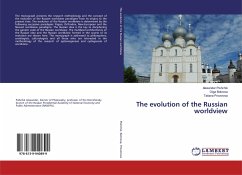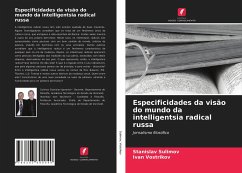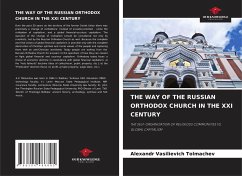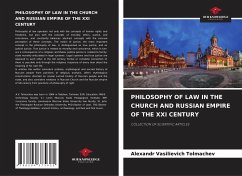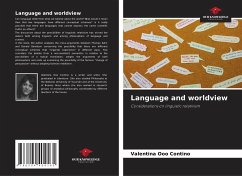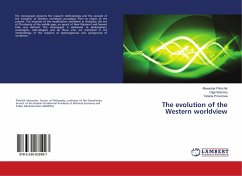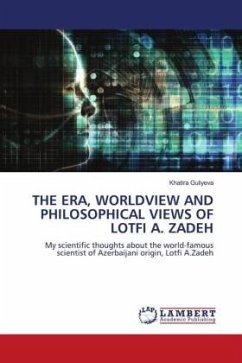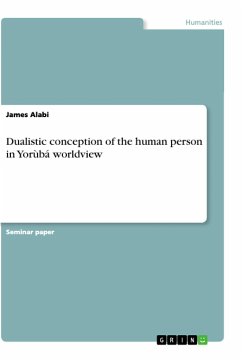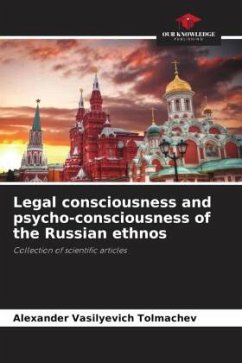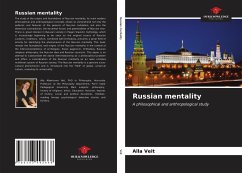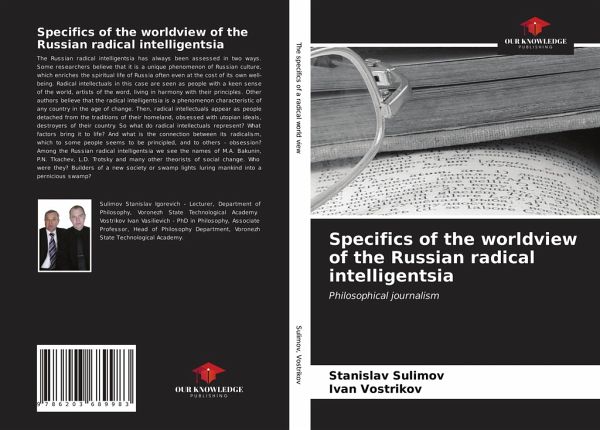
Specifics of the worldview of the Russian radical intelligentsia
Philosophical journalism
Versandkostenfrei!
Versandfertig in 6-10 Tagen
45,99 €
inkl. MwSt.

PAYBACK Punkte
23 °P sammeln!
The Russian radical intelligentsia has always been assessed in two ways. Some researchers believe that it is a unique phenomenon of Russian culture, which enriches the spiritual life of Russia often even at the cost of its own well-being. Radical intellectuals in this case are seen as people with a keen sense of the world, artists of the word, living in harmony with their principles. Other authors believe that the radical intelligentsia is a phenomenon characteristic of any country in the age of change. Then, radical intellectuals appear as people detached from the traditions of their homeland...
The Russian radical intelligentsia has always been assessed in two ways. Some researchers believe that it is a unique phenomenon of Russian culture, which enriches the spiritual life of Russia often even at the cost of its own well-being. Radical intellectuals in this case are seen as people with a keen sense of the world, artists of the word, living in harmony with their principles. Other authors believe that the radical intelligentsia is a phenomenon characteristic of any country in the age of change. Then, radical intellectuals appear as people detached from the traditions of their homeland, obsessed with utopian ideals, destroyers of their country. So what do radical intellectuals represent? What factors bring it to life? And what is the connection between its radicalism, which to some people seems to be principled, and to others - obsession? Among the Russian radical intelligentsia we see the names of M.A. Bakunin, P.N. Tkachev, L.D. Trotsky and many other theorists of social change. Who were they? Builders of a new society or swamp lights luring mankind into a pernicious swamp?
The Russian radical intelligentsia has always been assessed in two ways. Some researchers believe that it is a unique phenomenon of Russian culture, which enriches the spiritual life of Russia often even at the cost of its own well-being. Radical intellectuals in this case are seen as people with a keen sense of the world, artists of the word, living in harmony with their principles. Other authors believe that the radical intelligentsia is a phenomenon characteristic of any country in the age of change. Then, radical intellectuals appear as people detached from the traditions of their homeland, obsessed with utopian ideals, destroyers of their country. So what do radical intellectuals represent? What factors bring it to life? And what is the connection between its radicalism, which to some people seems to be principled, and to others - obsession? Among the Russian radical intelligentsia we see the names of M.A. Bakunin, P.N. Tkachev, L.D. Trotsky and many other theorists of social change. Who were they? Builders of a new society or swamp lights luring mankind into a pernicious swamp?
The Russian radical intelligentsia has always been assessed in two ways. Some researchers believe that it is a unique phenomenon of Russian culture, which enriches the spiritual life of Russia often even at the cost of its own well-being. Radical intellectuals in this case are seen as people with a keen sense of the world, artists of the word, living in harmony with their principles. Other authors believe that the radical intelligentsia is a phenomenon characteristic of any country in the age of change. Then, radical intellectuals appear as people detached from the traditions of their homeland, obsessed with utopian ideals, destroyers of their country. So what do radical intellectuals represent? What factors bring it to life? And what is the connection between its radicalism, which to some people seems to be principled, and to others - obsession? Among the Russian radical intelligentsia we see the names of M.A. Bakunin, P.N. Tkachev, L.D. Trotsky and many other theorists of social change. Who were they? Builders of a new society or swamp lights luring mankind into a pernicious swamp?



